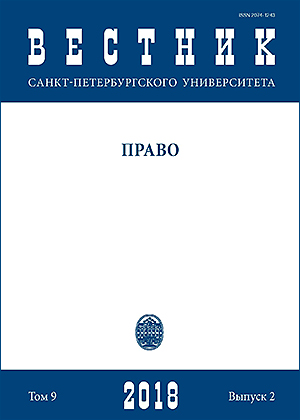Joint Development issues after the South China Sea arbitration: Dilemma, opportunity and China’s choice
DOI:
https://doi.org/10.21638/11701/spbu14.2018.210Abstract
Since the late 1970s, the Chinese government has put forward a principle named ‘Set aside dispute and pursue joint development’. However, a joint development precedent does not exist that would assure the successful application of this principle between China and other countries with claims in South China Sea region. The possibility of joint development in the South China Sea faces the following major difficulties and challenges: a lack of political will, weak practical needs, island sovereignty disputes, ambiguities in various disputed maritime areas, and the interference of external forces. The award of the South China Sea arbitration case may exert a negative impact on joint development in this area. Though China and the Philippines are less likely to jointly develop the oil and gas resources in the South China Sea, with the improvement in Sino-Philippine relations and the further development of the relationship between China and ASEAN, as well as its member states, there is a strong possibility that the two countries will achieve cooperation and joint development in the fishery domain. Moreover, China is most likely to initiate the joint development with Indonesia, in the Natuna Islands sea area, the South China Sea.
Keywords:
Sino-Philippine Arbitration Case, Joint Development, the South China Sea, United Nations Convention on the Law of the Sea
Downloads
References
China_Sea_Under_Annexure_VII_of_UNCLOS.
Downloads
Published
How to Cite
Issue
Section
License
Articles of "Vestnik of Saint Petersburg University. Law" are open access distributed under the terms of the License Agreement with Saint Petersburg State University, which permits to the authors unrestricted distribution and self-archiving free of charge.






